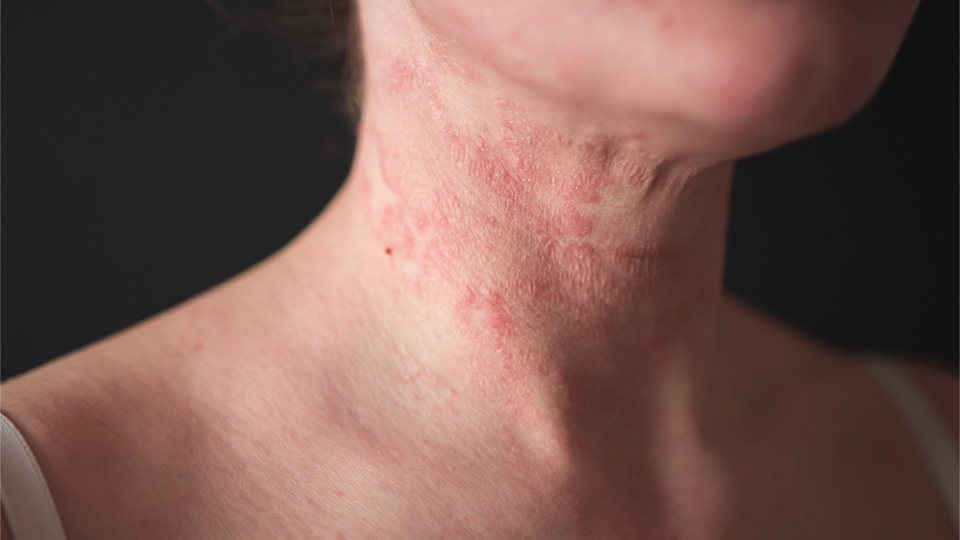Articles
By Angela Ballard, RN
Published On: Sep 12, 2024
Last Updated On: Nov 27, 2024
What exactly is an eczema flare? Often, it depends on who you ask. “There has been no real agreement on what an eczema flare truly entails,” said Wendy Smith Begolka, chief strategy officer at the National Eczema Association (NEA). The word “flare” is often used in clinical trials and by healthcare providers because decreasing flare frequency and severity is a key goal of eczema treatment. “But if we don’t have a common understanding of what a flare is, and make sure that definition is in line with how people actually living with eczema think about their flares, there can be a serious disconnect,” she said.
To help develop a more patient-centered definition of an atopic dermatitis (AD; also known as eczema) flare, the NEA research team recently conducted patient focus groups and an online survey. Their study results are now published in a paper, “Consensus on a patient-centered definition of atopic dermatitis flare,” in the Journal of the American Medical Association Dermatology (JAMA Dermatology). Included in the study is new data as well as previous NEA research on the key concepts for an AD flare definition that was published in the British Journal of Dermatology in January 2024.
Research methods
For this study, NEA researchers used an accepted consensus-building process, known as modified eDelphi, to bring people with eczema together into focus groups to discuss and eventually agree upon a set of flare-defining characteristics. Participants were adults diagnosed with eczema and living in the U.S. The focus groups included 28 members who, through a formal and organized process, agreed upon 15 statements as critical to the definition of an eczema flare.
The 15 statements were then posed to a larger group of people with eczema as part of an online survey. Survey respondents were recruited through NEA outlets like their website and social media. Through survey analysis, it became clear that the larger group agreed that 12 out of the 15 statements should be included in the definition of an AD flare.
Key takeaways
Through this study’s focus groups and online survey, participants agreed that the following 12 statements beginning with “An atopic dermatitis (AD) flare is…” are critical to a patient-centered definition of an AD flare:
- An acute worsening of symptoms of AD.
- A change in physical health associated with AD that interrupts my day to day.
- An “eruption” on some area of my body.
- A worsening of itching associated with AD.
- When my signs go from being background noise to being in the foreground.
- When my symptoms go from being background noise to being in the foreground.
- When I lose my sense of control over my disease management.
- When my symptoms take significantly more of my attention than normal.
- When I start thinking about my symptoms constantly.
- When symptoms impact my quality of life.
- When symptoms affect my daily activities.
- A worsening of physical symptoms associated with AD.
Data from this study also demonstrated that there is no common understanding of what an AD flare is, as 47% of survey respondents indicated that they do not agree with their healthcare providers about what an AD flare means. Yet 78% reported they would use a patient-centered definition to better communicate with their healthcare provider about their disease and care, underscoring the need for such a definition.
Why this research matters
When this research started, there were over 20 different proposed definitions of an AD flare, yet very few of had included the patient perspective. “Moving forward, having agreement on statements that are important for a patient-centered definition of an eczema flare can really help to improve shared decision-making and dialogue between clinicians and their patients,” said Smith Begolka, the study’s principal investigator. “Our goal with this work is to ultimately improve clinical and patient-reported outcomes for AD, and having a way to align on the meaning of a flare is an important step toward that goal.”






